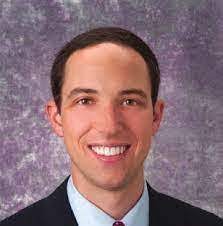In an era where self-reliance is often celebrated, there’s a prevailing misconception that seeking help from mental health professionals is reserved for those on the brink of a crisis. Dr Michael Hilton, a prominent psychiatrist, aims to debunk this stigma and shed light on the diverse role these professionals play in enhancing emotional well-being.
Breaking the Stigma: Understanding the Role of a Psychiatrist
Contrary to popular belief, the work of a psychiatrist extends beyond prescribing medications for severe mental disorders like schizophrenia. Dr Michael Hilton emphasizes that psychiatrists can offer valuable guidance on various aspects of life, from improving lifestyle choices to providing insights on parenting and family dynamics. Dispelling the notion that only those facing severe mental challenges should seek help is crucial in promoting mental health awareness.
When to Consider a Psychiatrist: A Wide Spectrum of Support
The decision to consult a psychiatrist is not limited to the extremes of mental health crises. Individuals can benefit from these specialists when facing challenges that affect their social relationships or cause persistent emotional distress. Dr Michael Hilton underscores the importance of seeking help for less critical issues, emphasizing that preventive treatment can mitigate potential long-term health problems.
Addressing Sudden Difficulties: An Urgent Call for Support
Psychiatrists play a pivotal role in addressing sudden difficulties, such as hallucinations or panic attacks. Dr. Hilton stresses that immediate attention is essential in such cases to provide the best options for improvement. Beyond severe disorders, psychiatric specialists are equipped to handle maladaptive anxiety attacks, depression, and various psychological symptoms that impact daily functioning.
Understanding the Psychiatrist’s Toolkit: Beyond Medications
While psychotropic drugs may be a part of psychiatric treatment, Dr. Michael Hilton emphasizes that psychiatrists are equally adept at offering tips to improve lifestyle and behavioral patterns. They evaluate and monitor complex side effects, ensuring a holistic approach to mental well-being. The goal is not just symptom management but the enhancement of emotional and behavioral functioning in society.
Signs That Signal the Need for Psychiatric Assistance
Recognizing the signs that indicate the need for psychiatric assistance is crucial. Dr. Michael Hilton advises individuals to be vigilant for changes in their daily lives that could lead to serious health problems. Circumstances such as difficulty overcoming sexual habits through therapy may necessitate the combined expertise of a psychiatrist and a medical prescription.
In conclusion, seeking help from a psychiatrist like Dr. Michael Hilton is not reserved for the extreme fringes of mental health. These professionals are valuable allies in promoting emotional and behavioral well-being across a spectrum of challenges. Dispelling misconceptions and recognizing the diverse roles of psychiatrists empowers individuals to proactively address mental health concerns, promoting a society where seeking professional guidance is normalized and celebrated.



